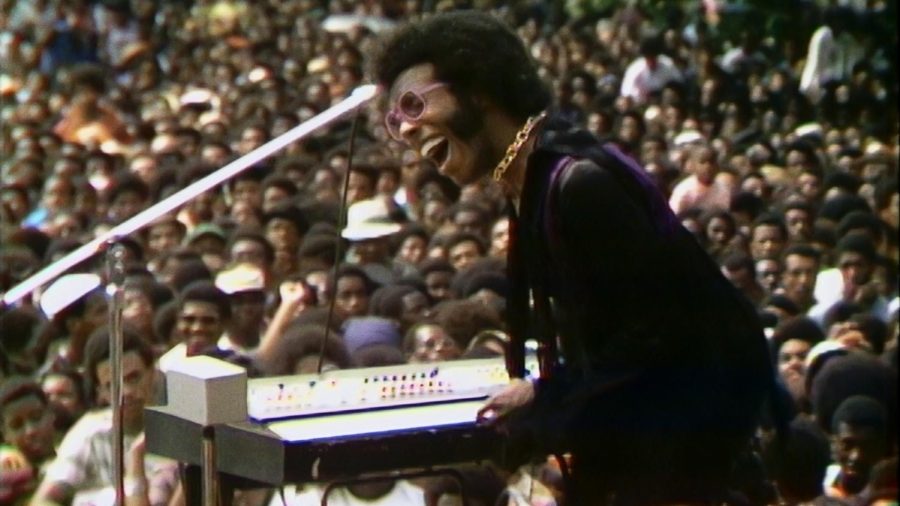Happy Black History Month everyone!
As a huge fan of history overall, I love having a whole month to discuss and share the lesser known moments that have helped define our country and culture. Black history especially, for there is so much range and power in so many of its figures, Jesse Jackson being one of my favorite speakers.
But I have to be honest, this was one of the hardest posts I’ve had to make, as evident by its tardiness. There are so many works and artists that I am dying to talk about, be it the filmography of Spike Lee, essays of James Baldwin or the up and coming Wanuri Kahiu. And I’m sure we’ll get to at least one of them later, for black history doesn’t end on March 1st.
I wanted something educational, vibrant and of course, fun with an off-the-beaten-path twist. Then I saw the Oscars nominations, and I felt like a grade A idiot. Of course, what about the best documentary ever?
Summer of Soul (…Or, When the Revolution Could Not Be Televised), yes that’s the full title, covers the 1969 Harlem Cultural Festival, organized by the extremely well dressed Tony Lawrence, seen adorned in blue suits with a little red scarf around his neck, and sometimes bright pink puffy sleeves. Admittance was free, vast assortments of food was sold across the block, and though police did provide security, Black Panthers patrolled crowds of dashikis, wool suits, bell bottom jeans and leather jackets. With a stage hosting music ranging from gospel, rock, Motown hits and blues.
Unlike most documentaries, the subject itself isn’t doing all the heavy lifting. Director Questlove and Editor Joshua Person breathe new life in this fifty year old footage, cutting on obvious things like the music, or sliding the camera past still images in order to add energy to otherwise stilted footage, though at times, they take it a step further.
In a pivotal moment, reverend Jesse Jackson Sr speaks about his last moments with MLK, the footage cuts to recorded footage of the young Jackson, speaking with full force of a preacher, and new interviews with the far older man, speaking in a tone that age brings. Both speak on MLK teasing him ever so slightly, as a guitarist, the last man MLK ever spoke to, plays his favorite song, Take My Hand, Precious Lord. The guitar, previously increasing in volume, quiets itself. “Then POW!” The guitarist lets out violent lick, absorbing the vacuum of silence as a picture of the monumental leader’s body flashes onto the screen. It’s a sudden, violent, and unnerving mix of audio and visuals, and it’s perfect. Then Mahalia Jackson, on the brink of tears, delivers a strong, passionate gospel song calling for god to hold her. And not too long after, David Ruffin plays a bright pop song.
The film’s range is just as diverse as its playlist, with grieving for great leaders, discontent at government, celebration of life and laughing at ventriloquists at times running one after the other. Taken together, they help to construct a complex picture of a festival otherwise forgotten by time, as black history often is, a sentiment expressed by subjects of the film.
Summer of Soul is a celebration of a celebration, perfectly preserved and presented with an energy that was always present at the festival, only necessarily translated for the screen. A collage of songs and speakers, fashions and ideologies. The conflict between proponents of MLK’s philosophy of nonviolence and Kwame Ture’s of Black Power, the adoption of the word “black” used to describe african americans and the rise of afrocentrism are all featured in the documentary, half of which I was only vaguely familiar with. The film presents this festival as one at a crossroads, intersecting all of these differences and catering to all through sheer creativity. Of course, the anxiety that the whole thing was orchestrated to release steam, and avoid another series of riots that captured the city following the assasination of MLK, lingers through the air, as subject Musa Jackson comments, souring the festival.
Summer of Soul is far more than a music documentary, though the nonstop momentum of music may make it seem like a compilation of music videos at times, but a wonderful reminder of the richness of culture in the african american community and the joy of celebration.
Summer of Soul is available for streaming on Hulu and Disney+.































![What happened to theater etiquette? [opinion]](https://hilite.org/wp-content/uploads/2025/04/Entertainment-Perspective-Cover-1200x471.jpg)













































![Review: “The Immortal Soul Salvage Yard:” A criminally underrated poetry collection [MUSE]](https://hilite.org/wp-content/uploads/2025/03/71cju6TvqmL._AC_UF10001000_QL80_.jpg)
![Review: "Dog Man" is Unapologetically Chaotic [MUSE]](https://hilite.org/wp-content/uploads/2025/03/dogman-1200x700.jpg)
![Review: "Ne Zha 2": The WeChat family reunion I didn’t know I needed [MUSE]](https://hilite.org/wp-content/uploads/2025/03/unnamed-4.png)
![Review in Print: Maripaz Villar brings a delightfully unique style to the world of WEBTOON [MUSE]](https://hilite.org/wp-content/uploads/2023/12/maripazcover-1200x960.jpg)
![Review: “The Sword of Kaigen” is a masterpiece [MUSE]](https://hilite.org/wp-content/uploads/2023/11/Screenshot-2023-11-26-201051.png)
![Review: Gateron Oil Kings, great linear switches, okay price [MUSE]](https://hilite.org/wp-content/uploads/2023/11/Screenshot-2023-11-26-200553.png)
![Review: “A Haunting in Venice” is a significant improvement from other Agatha Christie adaptations [MUSE]](https://hilite.org/wp-content/uploads/2023/11/e7ee2938a6d422669771bce6d8088521.jpg)
![Review: A Thanksgiving story from elementary school, still just as interesting [MUSE]](https://hilite.org/wp-content/uploads/2023/11/Screenshot-2023-11-26-195514-987x1200.png)
![Review: "When I Fly Towards You", cute, uplifting youth drama [MUSE]](https://hilite.org/wp-content/uploads/2023/09/When-I-Fly-Towards-You-Chinese-drama.png)
![Postcards from Muse: Hawaii Travel Diary [MUSE]](https://hilite.org/wp-content/uploads/2023/09/My-project-1-1200x1200.jpg)
![Review: "Ladybug & Cat Noir: The Movie," departure from original show [MUSE]](https://hilite.org/wp-content/uploads/2023/09/Ladybug__Cat_Noir_-_The_Movie_poster.jpg)
![Review in Print: "Hidden Love" is the cute, uplifting drama everyone needs [MUSE]](https://hilite.org/wp-content/uploads/2023/09/hiddenlovecover-e1693597208225-1030x1200.png)
![Review in Print: "Heartstopper" is the heartwarming queer romance we all need [MUSE]](https://hilite.org/wp-content/uploads/2023/08/museheartstoppercover-1200x654.png)



